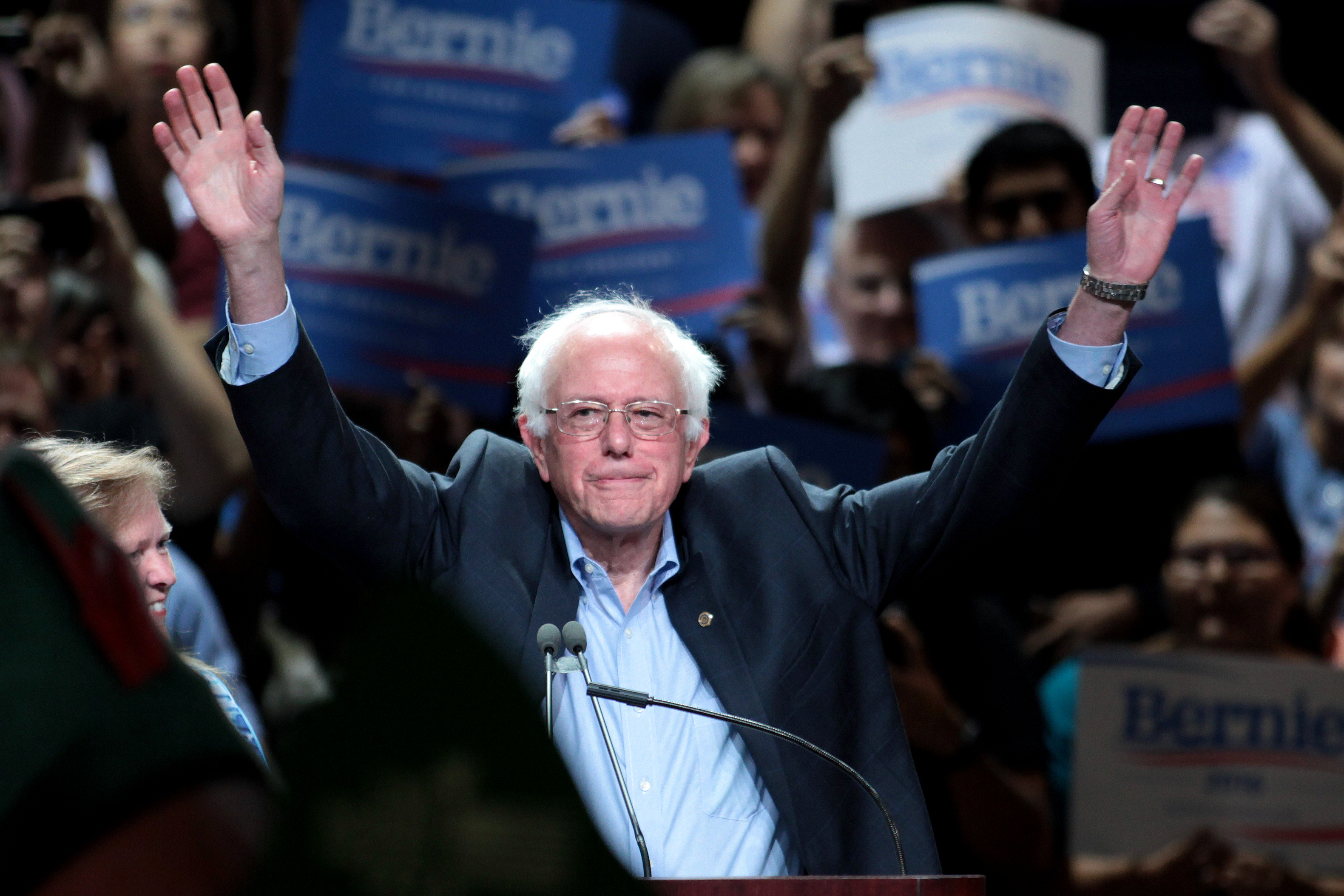
So now we know that Bernie Sanders’s ambition to renew US politics does not stop at the water’s edge. Last week, when presenting his foreign policy vision at Westminster College, Sanders did not limit himself to the moral deficit of U.S. national security orthodoxy. He squarely targeted core aspects of American foreign strategy. And rightfully so. More than six months after the election, Sanders is by far the most popular politician in America.
During the election, voters were repeatedly told that Sanders lacked a “serious” foreign policy vision. However, the Vermont senator has an impressive record of being on the right side of history. From the Vietnam War to the invasion of Iraq, Sanders has opposed the Washington Consensus, which seamlessly goes from one disaster to another.
In keeping with the theme of his 2016 campaign, Sanders connected the bloated military budget to domestic poverty plaguing America. “Foreign policy is not just tied into military affairs; it is directly connected to economics,” Sanders said. “Foreign policy must take into account the outrageous income and wealth inequality that exists globally and in our own country.” He added, “they must be understood as part of the same system and fought in the same way.”
This is, after all, a country that has overwhelmingly passed a $700 billion defense bill; meanwhile, as Sanders puts it, “they want to throw 32 million Americans off of the health insurance they currently have because, supposedly, they are worried about the budget deficit.”
Within his speech, Sanders also drew attention to the double standards that have undermined U.S. credibility around the world. He justified this by citing disastrous regime change policies in Iraq, as well as CIA-backed coups against Chilean leader Salvador Allende and Mohammed Mossadegh’s democratically elected government in Iran. He reminded his audience that the rise of “inequality, corruption, oligarchy, and authoritarianism are inseparable,” and that
“[we] cannot convincingly promote democracy abroad if we do not live it vigorously at home.”
Later, in an interview with The Intercept’s Mehdi Hasan, Sanders doubled down on his past argument that “Israel’s continued occupation of Palestinian territories” has been “contrary to fundamental American values,” slamming both parties as “complicit” because of the unconditional support for Israel and its treatment of Palestinians. For those who want peace, these are important remarks that would help shift the “Overton Window” on this static policy – much like what he has done domestically on the healthcare front.
His responses to the War on Terror and the subsequent U.S. blunders in the Middle East are no different: “As an organizing framework, the Global War on Terror has been a disaster for the American people and for American leadership.” Sanders continued: “Orienting U.S. national security strategy around terrorism essentially allowed a few thousand violent extremists to dictate policy for the most powerful nation on earth.” What is astounding about this statement is not that it diminishes the prevailing War on Terror narrative, but that it represents a fundamental distinction from the positions of both the Democratic and Republican establishment.
In truth, Sanders’s ideas have long reflected public opinion. Recent polls have consistently shown that the majority of Americans oppose expanding military presence overseas, and favour diplomacy over preputial wars abroad. In holding these views, Sanders is in tune with the anti-intervention sentiment that has grown alongside the anti-establishment wave sweeping the West.
Sanders’ approach can open the political space for a progressive coalition among both the anti-interventionist left and the isolationist right. These are the same economically disillusioned voters who crave a genuine alternative and are ignored for doing so. Indeed, before morphing into a full-fledged neocon, Trump himself harnessed those sentiments to beat Hillary Clinton.
Bernie’s criticism of American foreign policy draws attention to the international policy that fuels massive inequality at home and spreads insecurity overseas. Reaching back into the dark history of CIA coups during the Cold War, Sanders points out that when the United States artificially interrupts the organic political progression of other nations, it generally backfires. His logic on the War on Terror fits into the same pattern: it is expensive, isn’t working and it’s damaging U.S. interests in the long run.
Just like his economic policies, many of Sanders’s foreign policy stances will be smeared as dangerous and appalling to the political class. But they are the ones that increasingly reflect the views of the wider population.